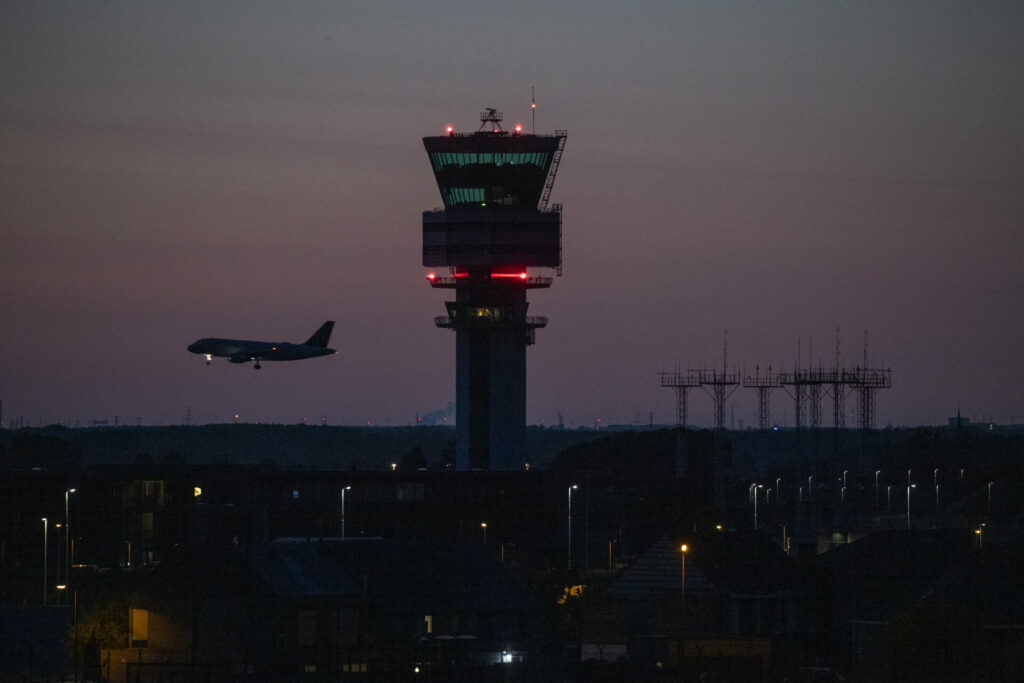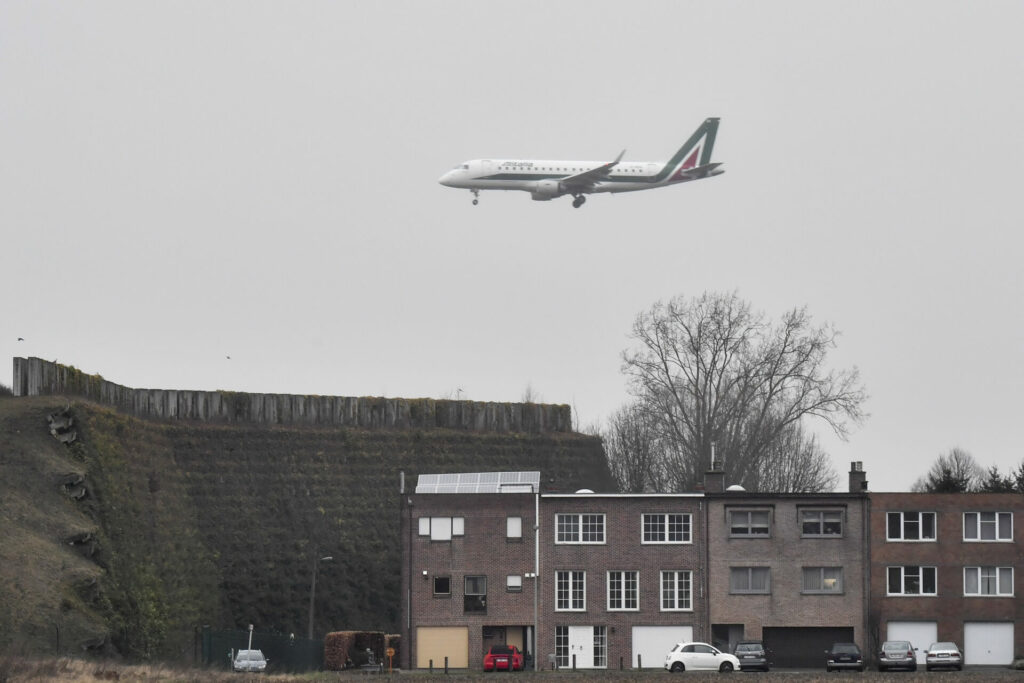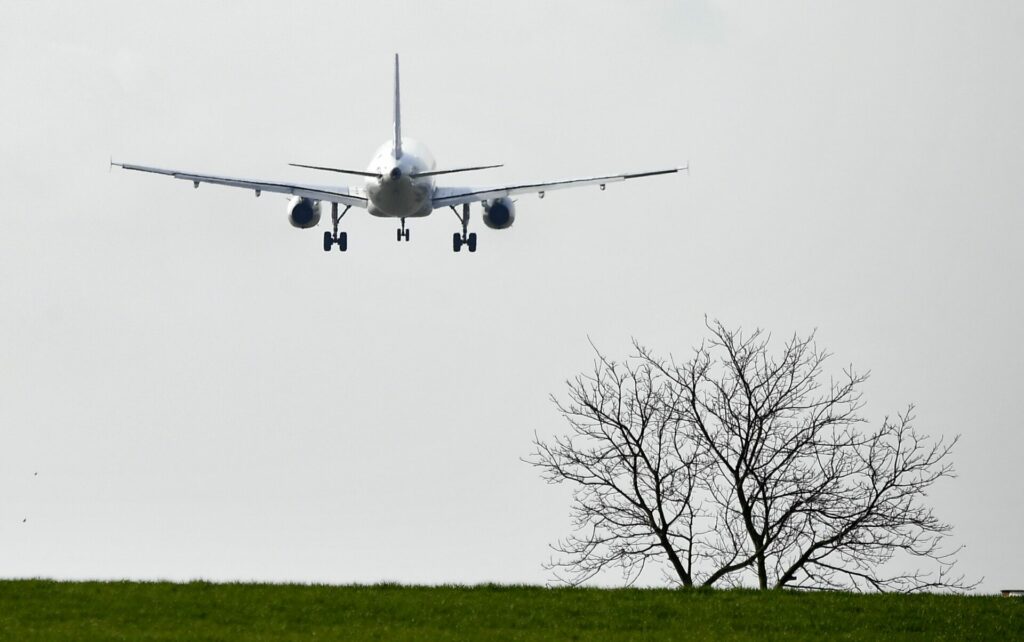To protect the health of local residents following the decision by the Flemish Government to issue a permanent environmental permit for Brussels Airport in Zaventem, Brussels Environment Minister Alain Maron (Ecolo) will file an appeal against it.
The Brussels Government is appealing the decision, despite protests from Flemish liberal Open VLD – breaking the "collegiality that has always prevailed" in this dossier. Therefore, Maron is appealing the decision to grant the permit in his competence as Environment Minister, alongside several Brussels municipalities.
"In the 21st century, it is no longer conceivable to have an airport close to densely populated areas without finding a better balance between the economy and the environment and health," Maron said in a press release.
Outdated vision
The permit will limit the number of flights to 240,000 a year from 2032, but that still leaves space for a 13% increase from the current 212,000 annual flights. Despite demands from many residents and organisations for a ban on night flights, the permit does not address this.
"In this sense, the Flemish permit is short-sighted and not only damages the environment and people's health, but also entails long-term risks for the airport's survival," he said. "The capital of Europe must have an efficient, international airport that is managed in a way that takes into account the well-being and health of local residents."
Other major European cities, such as Amsterdam, have decided to strike a better balance by abolishing night flights to protect the sleep of local residents, Maron pointed out. "The liberals and the N-VA are basing this on an outdated vision of economic development that does not meet the challenges of this century."
He stressed that the Flemish permit goes further than the Flemish administration's own advice by allowing a significant increase in flight movements and maintaining the authorisation of the much-contested night flights from Zaventem.

The control tower at Brussels Airport Zaventem. Credit: Belga
Additionally, the measures that have been taken to reduce the nuisance are minor and do not guarantee an improvement in the situation for the affected residents of Brussels, Wallonia and Flanders.
Therefore, Maron stressed that the permit is "completely unbalanced" and is "mainly intended to meet the interests of the airlines and the airport operator." Health and environmental problems were not taken into account at all, despite the fact that these consequences have never been better detailed.
The Minister will bring the appeal to the Council for Permit Disputes. As always, he will also consult with the Brussels municipalities about regional legal claims.
'Untenable and intolerable'
Schaerbeek is one of the Brussels municipalities that has always been at the forefront of the fight against flights over its territory. On Thursday afternoon, the municipality announced that it is joining Maron in his appeal against the issuing of the permit, stating that none of the suggested conditions were taken into account.
"We must absolutely appeal this decision and assert the rights of Schaerbeek residents," said Frédéric Nimal, Schaerbeek's city councillor in charge of the fight against aircraft nuisance and air pollution. "The situation is untenable and intolerable for everyone in terms of quality of life."
Nimal added that while the airport is located in Flanders, complaints about noise pollution mainly come from residents of the Brussels-Capital Region – which lies directly underneath most aircraft's flight routes. "The people of Schaerbeek see their quality of life deteriorating on a daily basis. The current situation is unacceptable."

Airplane landing at Brussels Airport in Zaventem. Credit: Belga
On Wednesday, the Flemish municipality of Kortenberg on the border with Zaventem and the Brussels Airport runways also announced that it filed an appeal with the Flemish Council for Permit Litigation to demand the cancellation of the permit, as the health of residents was not sufficiently taken into account.
"The conditions imposed are insufficient to guarantee the essential balance between the economic interests of the airport and the quality of life of local residents," said Mayor Alexandra Thienpont in a press release. "These measures are purely symbolic and are not based on public health research."
The municipality also criticised the fact that the new permit is of indefinite duration, making it "difficult to eliminate night flights in the future or to refine their conditions," said Thienpont. "There are no clear conditions regarding the phasing out of night flights from the start."

